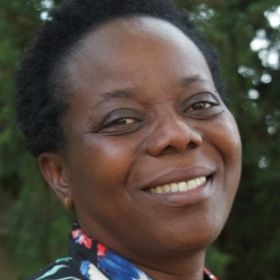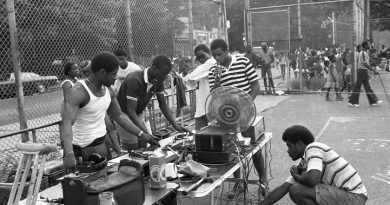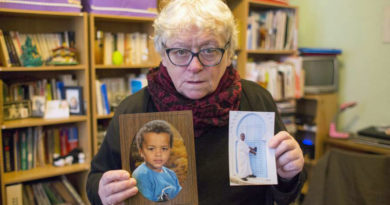Finding Home Abroad: Wilma Adotevi’s Tale of Adaptation and Discovery
I decided to interview Wilma who often says stories about her adaptation period in France, how she struggled and what she missed from her home country. I therefore wanted to deepen this conversation with her. I went into her home office, at first she was reluctant to share something private on the school magazine. I managed to convince her that it will be an interesting story to tell. Therefore we started the interview with the questions I prepared in advance. It was a Wednesday afternoon, she was dressed in a blue shirt and black trousers. She had just finished an online meeting. She was nervous at first and asked several questions about the purpose of the exercise before we could start. At first, it wasn’t easy to bring her memories back. Little by little she became more relaxed and happy to be able to share her story.
First of all, tell me your name and where were you born?

My name is Wilma Adotevi, I was born in Lome, Togo and lived there until I was 22 years old.
Why and when did you leave your native country?
I left Lomé for Paris in 1998. Because after my secretary studies I could not find a proper job. I wanted also to study more than the secretary studies I did. I had two brothers studying in France at that time, they offered to help me to come to France and do the additional studies I was looking for.
Was it difficult for you to adapt in France?
It was difficult to adapt in France although I already spoke French, which was the language of the studies that I did in Togo. This was the first time I was living far from home, I “lost” my friends. Back then we had to write letters to stay in touch, it was not as instantaneous as now with faster communication tools. International telephone costs were not affordable for a student like me.
How did you create another social circle from scratch?
It was not easy to make new friends. I first got a bit closer to class mates at the university. Most of them were also foreigners in France (from China, Vietnam and Haiti). We started sharing our experiences and tips on how to navigate in our new environment. Then I expanded my circle at my yoga and dance classes from the university campus, people were from all over Europe. My closest friends today are from this period. It took me another year or two to make close friends. I felt lonely during the first months to tell the truth.
Which brings me to my next question, Have you stayed in touch with old friends and family who remained in Togo? And if so, how?

Yes of course! I’ve managed to maintain contact with my mom, my three closest cousins, and my two best friends. International phone calls were too expensive for me, so we exchanged more letters. I would make phone calls only for birthdays, New Year or emergencies. During my initial decade in France, I corresponded with my family and friends, sending and receiving letters at least every two weeks. I eagerly awaited their answers and promptly replied, sharing my impressions, new discoveries, differences I noticed, likes, dislikes, what I missed, and my new experiences. Nowadays, I can speak with my mother, who still lives in Togo, daily via WhatsApp. This might seem a routine for you, but over the span of 10 or 12 years, I’ve witnessed how much easier and more affordable it has become to stay connected with my loved ones in Togo, thanks to advancements in technology.
What did you miss the most from your native country and why?
I missed my friends, the lively atmosphere (we said hello to each other, even strangers, in France people were distant in my opinion), the food the sea, my home etc…
Which country in which you have lived you liked the most and why?
After Paris, I lived in Spain and Finland. Spain and Finland were easier to get adapted to because I was already adapted to the French (European) lifestyle. But the country that I loved the most was Spain, due to the nice weather and liveliness of the people. It reminded me of my home country more in terms of warmth of the people.
Looking back, do you have any regrets on having left your home country, did you achieve your objectives?
Looking back I am happy I went through all these challenging changes. I pursued the additional studies as I wanted and found a better job. I learnt a lot from all of the countries that I have lived in, always taking something from each. This made me a culturally richer person.
Do you think it is a loss for Togo that you and your brothers and sisters all left Togo and are living abroad?
I believe our experiences abroad can also bring benefits to Togo. Living in different countries exposes us to diverse cultures, ideas, and opportunities, which we can then bring back to Togo to contribute to its development. For instance, my brother often visits Togo to help in medical work, and I have a Togolese friend abroad who opened a library for children in Togo. And there are many more examples. Additionally, many of us send financial support back home, which can help our families and contribute to the local economy. So, while our absence may be felt, I prefer to see it as a potential gain for Togo at least on the long run should we wish so, rather than just a loss.
Michelle Merkouraki (S4FRD) / EEB1 Uccle




